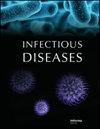Usefulness of PCR-RFLP coa gene for clonal classification of methicillin-resistant Staphylococcus aureus isolates in tertiary hospitals.
Scandinavian Journal of Infectious Diseases
Pub Date : 2014-10-01
Epub Date: 2014-08-19
DOI:10.3109/00365548.2014.929735
引用次数: 5
Abstract
One hundred and one methicillin-resistant Staphylococcus aureus (MRSA) clinical isolates were classified into 10 genotypes based on their polymerase chain reaction-restriction fragment length polymorphism (PCR-RFLP) coa pattern. PCR-RFLP coa patterns correlated with the clonal complex (CC) with the exception of CC5, which was related to 2 patterns (B and E). The PCR-RFLP coa gene technique provides a useful preliminary method to monitor variations in MRSA populations.
PCR-RFLP coa基因在三级医院耐甲氧西林金黄色葡萄球菌克隆分类中的应用
根据耐甲氧西林金黄色葡萄球菌(MRSA)临床分离株的聚合酶链反应-限制性片段长度多态性(PCR-RFLP) coa模式将其分为10个基因型。PCR-RFLP coa模式与克隆复合体(CC)相关,CC5与2种模式(B和E)相关。PCR-RFLP coa基因技术为监测MRSA群体的变化提供了一种有用的初步方法。
本文章由计算机程序翻译,如有差异,请以英文原文为准。
求助全文
约1分钟内获得全文
求助全文

 求助内容:
求助内容: 应助结果提醒方式:
应助结果提醒方式:


